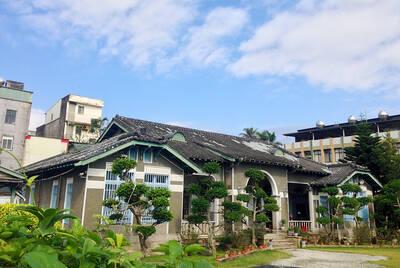The cheery mural that welcomes you to Calton not surprisingly fails to mention the dubious claim to fame of this district of eastern Glasgow — it has the lowest life expectancy in Europe.
Just a few minutes’ walk from the designer boutiques of Glasgow’s handsome city center, men can expect on average to die at 53 compared with the British national average of 77.
And in an area devastated by the collapse of the steel and textile industries, women can also expect shorter lives than their counterparts elsewhere in the UK, dying on average at 75 compared to 81 nationally.
While men in Glasgow as a whole lead shorter lives than elsewhere in Britain, Calton’s social problems are so deep they cause doctors and health officials to despair.
Dr Robert Jamieson has worked in Calton for 22 overstretched years.
“Sadly we have a lot of very unwell patients. It’s not unusual to see patients who have heart attacks in their late thirties or early forties, or having strokes as well,” he says.
“We have an abundance of obesity, type 2 diabetes and lung problems due to excessive smoking.
“In more affluent areas you have very large geriatric problems, because of the number of patients in their eighties or nineties.
“But sadly very few of our patients live until their eighties. Half the men die before 53 or 54 in this neighborhood.”
Jamieson says the chronic health problems stem from a lethal mix of a poor diet, poverty, unemployment, violence, plus heavy consumption of alcohol and drugs — and the bad habits are hard to break from one generation to the next.
In front of the decrepit Belgrove hotel in Calton, a home for single men with nowhere else to go, several residents are hanging around the front door, smoking heavily.
‘EVERY SINGLE FACTORY IS GONE’
It is shortly before 10am, but one of the residents announces he is heading to a pub and the bookmakers.
Opposite the Belgrove, a brand-new sports center complete with a gymnasium and football pitches is deserted until a group of children eventually turns up.
In Calton, 30 percent of residents — mainly descendants of Irish or Italian immigrants or with ancestors from the Scottish Highlands — are unemployed.
“It was the area of the industrial revolution and the start of the labor movement in Scotland,” says local historian Patricia Clark, who grew up in the area.
“Then came factories based on the steel industry. But the change [since the 1980s] is unbelievable because every single factory is gone.”
In an effort to get to the root of the crisis, the Scottish authorities created the Glasgow Centre for Population Health.
By comparing western Scotland with similar post-industrial areas of Europe, such as the Nord-Pas-de-Calais in northern France and the Ruhr in western Germany, researchers at the center have identified a “Glasgow effect.”
“We use this term because of the fact that Scotland’s health was poorer over and above that which you would expect from having high levels of poverty and deprivation,” explains David Walsh, public health program manager.
A hard-drinking culture in Scotland is undoubtedly one cause.
“It’s a general problem for the UK, but especially in Scotland, and Glasgow, we have the highest rate of alcohol-related deaths in Europe,” Walsh says.
“We have also a massive drug problem. For people in Calton, it’s been an issue, but you cannot isolate it from other factors in their life.”
But the researchers have yet to identify the exact cause of the high mortality rates in Glasgow; indeed the situation for the most deprived is getting worse.
“For the poorer fifth, life expectancy has actually decreased over 20 years,” Walsh concedes.

When life gives you trees, make paper. That was one of the first thoughts to cross my mind as I explored what’s now called Chung Hsing Cultural and Creative Park (中興文化創意園區, CHCCP) in Yilan County’s Wujie Township (五結). Northeast Taiwan boasts an abundance of forest resources. Yilan County is home to both Taipingshan National Forest Recreation Area (太平山國家森林遊樂區) — by far the largest reserve of its kind in the country — and Makauy Ecological Park (馬告生態園區, see “Towering trees and a tranquil lake” in the May 13, 2022 edition of this newspaper). So it was inevitable that industrial-scale paper making would

July 21 to July 27 If the “Taiwan Independence Association” (TIA) incident had happened four years earlier, it probably wouldn’t have caused much of an uproar. But the arrest of four young suspected independence activists in the early hours of May 9, 1991, sparked outrage, with many denouncing it as a return to the White Terror — a time when anyone could be detained for suspected seditious activity. Not only had martial law been lifted in 1987, just days earlier on May 1, the government had abolished the Temporary Provisions Effective During the Period of National Mobilization for Suppression of the Communist

Hualien lawmaker Fu Kun-chi (傅?萁) is the prime target of the recall campaigns. They want to bring him and everything he represents crashing down. This is an existential test for Fu and a critical symbolic test for the campaigners. It is also a crucial test for both the Chinese Nationalist Party (KMT) and a personal one for party Chairman Eric Chu (朱立倫). Why is Fu such a lightning rod? LOCAL LORD At the dawn of the 2020s, Fu, running as an independent candidate, beat incumbent Democratic Progressive Party (DPP) lawmaker Hsiao Bi-khim (蕭美琴) and a KMT candidate to return to the legislature representing

Asked to define sex, most people will say it means penetration and anything else is just “foreplay,” says Kate Moyle, a psychosexual and relationship therapist, and author of The Science of Sex. “This pedestals intercourse as ‘real sex’ and other sexual acts as something done before penetration rather than as deserving credit in their own right,” she says. Lesbian, bisexual and gay people tend to have a broader definition. Sex education historically revolved around reproduction (therefore penetration), which is just one of hundreds of reasons people have sex. If you think of penetration as the sex you “should” be having, you might